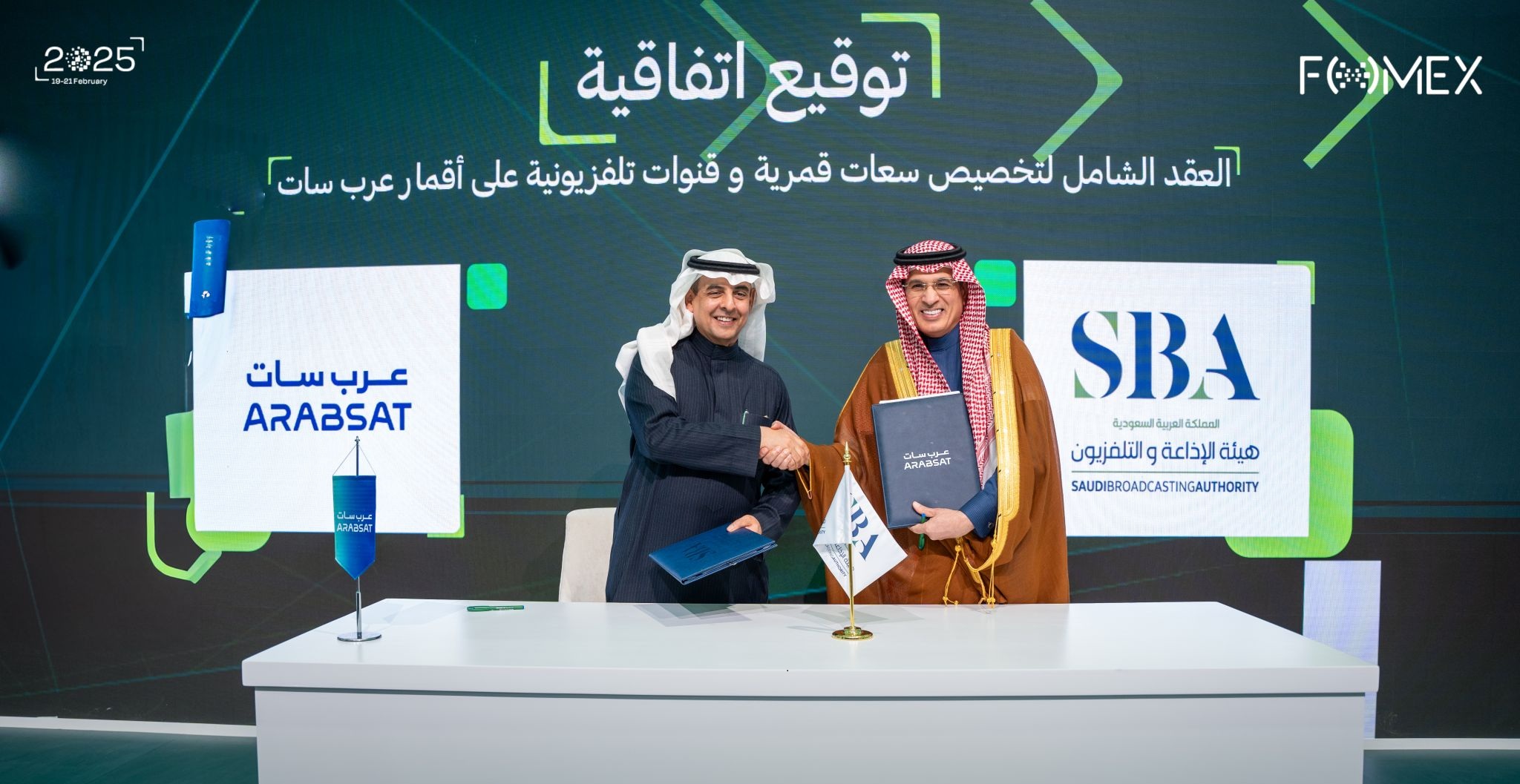SpaceWatch Middle East conducted a series of interviews during the international Broadcast Convention 2016 in Amsterdam in September. This interview is with Khalid Balkheyour, President and CEO of Arabsat.
Arabsat is one of the many satellite operators in the ME region, a very contested market. What is your current growth strategy for the region and the rest of the world? What do you think are the main trends in terms of territorial markets and industry segments?
Arabsat sees different venues of growth over the coming 5 years. Our broadcasting business is set for a huge growth as the preferred hotspot in MENA.
Large networks like BeIN and MBC have chosen our hotspot for exclusive distribution of their content. Arabsat forecasts significant growth in the number of channels at this neighbourhood, based on its attractiveness and the HD initiatives Arabsat is offering to its customers to expand their content into HD. This is supplemented by the launch of Arabsat’s new satellite Badr-7 that took place this year, securing further capacities for growth, achieving high fill factors on the existing Badr-series at 26° E.
Arabsat’s other hotspot is in Eastern Europe at 39° E. This is also set for double digit growth over the coming five years with the introduction of the new two satellites; Hellas-sat 3 and Hellas-sat 4 in 2017 and 2018. This will solve the capacity bottleneck there and also meet the needs of DTH and video distribution customers.
In telecom, Arabsat is expanding its HTS offering with three new satellites that are currently being manufactured. These satellites feature HTS payloads for government and enterprise networks.
What do you see as the biggest challenges and opportunities for Arabsat over the next five years?
The overwhelming capacity supply around world, especially in telecom services, has significantly affected the yields. This is expected to remain the case in the medium to long term and puts a lot of pressure on pricing.
We see also a continuing battle between the satellite industry and the IMT industry on resources and frequency allocations over the short to medium term.
On the other hand, the instability in the world has triggered more demand on governmental and military services in addition to a lot of national projects. This presents an opportunity to satellite operators to deliver various types of cooperation frameworks with those governments to utilise more capacity.
What are the company highlights and news from IBC 2016?
Arabsat is showcasing the capabilities of its latest satellite, Badr-7. It will extend Arabsat’s in-orbit capacity at the 26° E video hot-spot for direct-to-home broadcast and telecommunications services, and will provide broadband services in Ka-band with spot beam coverage. This new multi-mission satellite will deliver broadcast, broadband and telecommunications services over MENA, Africa and Central Asia.
Do you see upcoming LEO constellations as a threat for Arabsat and the established satellite operators?
All LEO satellite programs are still on paper, with one or two making progress.
Their biggest hurdle is to convince strategic investors to participate in their fund raising activities, partially because of the huge cost of such programmes, but also due to perceived operational difficulties.
Regardless, this industry has undergone various types of innovation and customers have different needs. If one of those constellations was realised, it will be serving a certain need or market. We do perceive an effect on pricing, but this will depend on the application.
SpaceWatch Middle East thanks Khalid Balkheyour, President and CEO of Arabsat, for the interview.
Original published at: http://spacewatchme.com/2016/10/the-spacewatchme-ibc-2016-interviews-khalid-balkheyour-of-arabsat/




